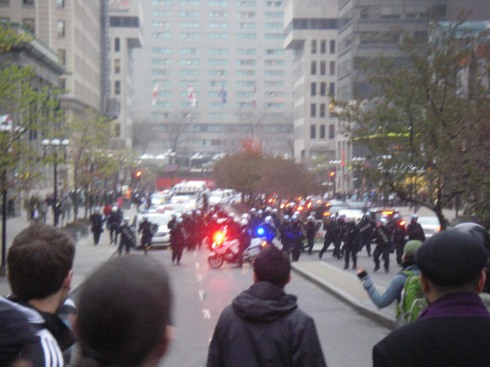Legalize! Organize! Unionize!
We want to be heard! We need to be heard! We will be heard!
We are here to celebrate May Day. We are here to celebrate our power as people who have found unity of purpose. Today we assert our power as working people. We declare our solidarity with all people of the world. We affirm our rights to economic security, to meaningful work, to health care, to public services, to safe and healthy communities, to free, quality public education from pre-K to college, and to civil liberties. Today, we stand in solidarity with all who take popular action to secure such rights, as we begin to form genuine alliances that challenge a system that breeds inequality.
We are here to decry the rampant growth of social, political and economic inequality. We seek an end to an era wherein a handful of political and economic elites govern in the name of democracy. We want an end to assaults on our human rights. We want an end to tax breaks for the rich. We want an end to the attacks on our right to organize. We want an end to the mass incarceration of people of color. We want an end to all wars and an end to the militarization of our foreign policy. We want an end to our current political system that is bought and paid for by 1%- ers. We want legalization, equal rights, civil rights, and a path to citizenship for immigrant working families. And we want citizenship to mean, as it should, that all people are to be treated justly and equally by their government.
Add a comment Add a comment

